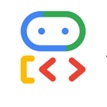Agentic AI Comparison:
AutoGen vs Google Agent Development Kit
Introduction
This report presents a comprehensive comparison between the Google Agent Development Kit (ADK) and Microsoft AutoGen. The analysis focuses on five key metrics: autonomy, ease of use, flexibility, cost, and popularity, referencing public documentation and recent comparative reviews. Each agent framework targets modular AI development, but they differ substantially in architecture, deployment philosophy, and supported tools.
Overview
AutoGen
Microsoft AutoGen employs an asynchronous, conversation-driven approach to multi-agent orchestration. It prides itself on cloud-agnostic flexibility, strong support for declarative agent specifications, simple API surface, and is well-suited for complex multi-agent collaboration pipelines.
Google Agent Development Kit
Google ADK is engineered for modular, multi-agent systems, emphasizing tight integration within Google's cloud ecosystem and offering specialized workflow orchestration. It features built-in Google tools and multimodal capabilities, making it highly suitable for teams invested in the Google Cloud Platform.
Metrics Comparison
autonomy
AutoGen: 9
AutoGen agents can be configured with varying autonomy—from human-in-the-loop to self-reflective multi-agent teams. The actor model, asynchronous messaging, and runtime abstractions facilitate independence and distributed execution.
Google Agent Development Kit: 8
ADK supports dynamic agent orchestration, agents can delegate, coordinate, and operate in either structured workflows or reactively via LLMs. It also features controller agents for hierarchical autonomy, but full autonomy is best realized within the Google stack.
AutoGen offers slightly higher practical autonomy, especially in diverse, distributed deployments, while ADK excels within tightly controlled cloud orchestrations.
ease of use
AutoGen: 9
AutoGen provides a minimal, intuitive API (AgentChat, easy agent/team specs). Setup is more hands-on, but its declarative design and ability to serialize entire agent configurations in JSON add major usability for rapid prototyping.
Google Agent Development Kit: 8
ADK's setup, especially within GCP, is straightforward. Pre-built tools and seamless integrations save developer time, but external LLM support requires extra steps, and its design assumes comfort with Google’s cloud services.
Both frameworks score high, with AutoGen slightly more intuitive for coding multi-agent conversations, while ADK is easier for GCP users and quick deployments.
flexibility
AutoGen: 10
AutoGen is cloud-agnostic and excels in flexibility: agents, tools, environments, and orchestration can be mixed and matched freely. Supports all major LLM providers, distributed runtimes, and custom inter-agent collaborations.
Google Agent Development Kit: 7
ADK allows for modular agent design and supports LLMs beyond Google's models through connectors, but its strongest features, like audio/video streaming and tool integration, are closely tied to Google Cloud.
AutoGen is markedly more flexible, especially for cross-cloud, platform-independent, or bespoke agent orchestration projects.
cost
AutoGen: 8
AutoGen is open-source and incurs minimal framework costs. The main expenses are tied to the choice of LLMs and external cloud infrastructure but allows for fine-grained resource allocation and scaling outside proprietary stacks.
Google Agent Development Kit: 7
ADK itself is open-source, but real-world deployments often incur costs attached to Google Cloud resources, including Vertex AI and networked tooling. Costs are predictable for those already operating within GCP.
Both solutions are free to use, but AutoGen may offer lower overall deployment costs for non-GCP environments due to its platform flexibility.
popularity
AutoGen: 8
AutoGen enjoys robust popularity in open-source and research circles, active GitHub community, and broad adoption for experimental agent projects, especially those requiring custom, cross-platform integration.
Google Agent Development Kit: 7
ADK adoption is strong within Google-centric organizations and enterprise AI teams, but is newer to the agent ecosystem and less discussed in open-source community forums compared to competitors.
AutoGen has a slight edge in global popularity and open-source usage, while ADK sees deeper enterprise adoption inside Google's platform.
Conclusions
Both Google ADK and Microsoft AutoGen are leading agent frameworks, each optimized for different priorities. ADK is ideal for rapid, reliable agent deployment within the Google ecosystem, with multimodal capabilities and cloud-first integration. AutoGen stands out for its platform-agnostic flexibility, high autonomy, scalability, and strong open-source community support. Choice should be guided by infrastructure needs, preferred cloud services, and required orchestration complexity.

